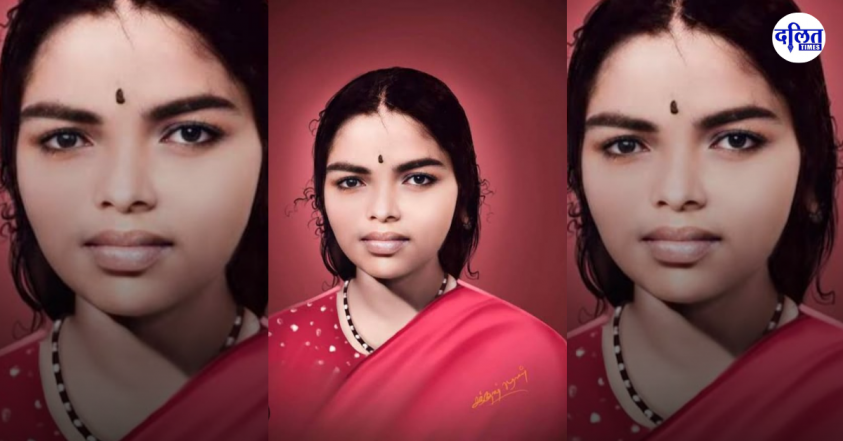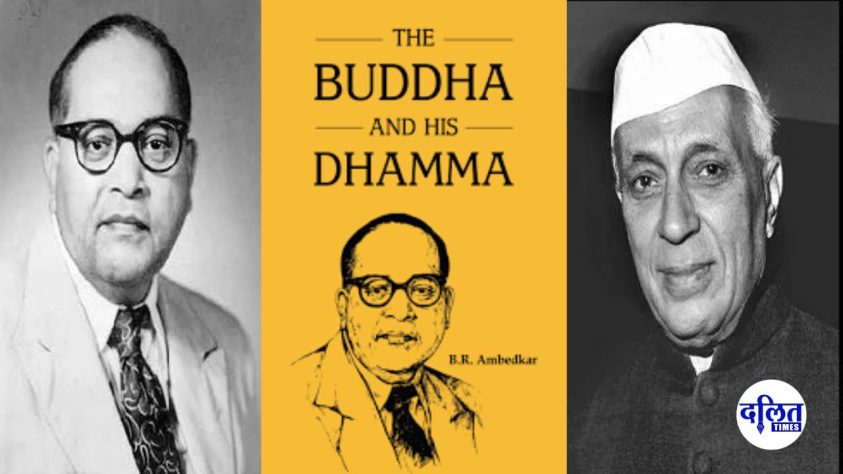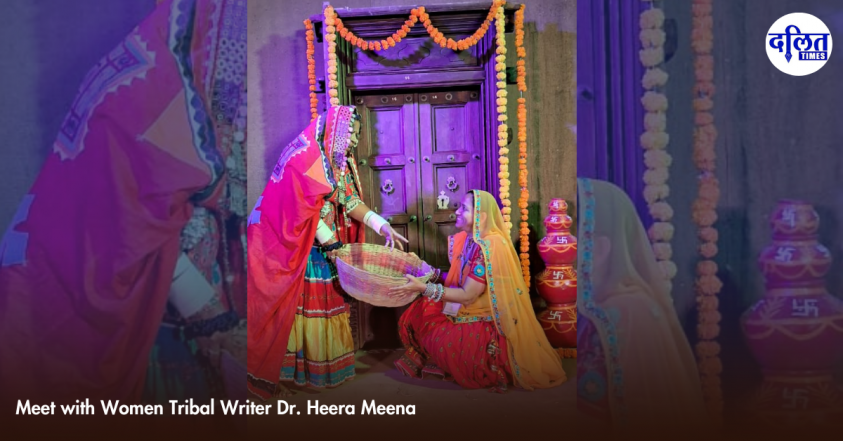Cinema, often lauded as a realm of dreams and boundless imagination, has also been a battlefield where societal hierarchies manifest themselves. Among the many untold stories, P.K. Rosy’s stands out—an emblem of defiance, passion, and a relentless pursuit of art in the face of merciless oppression. As the first heroine of Malayalam cinema, she scripted history, only to have it cruelly erased. Yet, like a phoenix, her legacy continues to rise, inspiring generations to question, challenge, and break barriers.

A Childhood in Shadows, a Spirit in Rebellion
Born in 1903 in Nandankode, Trivandrum, Rosy belonged from the Pulaya community, a marginalized Dalit sect bound by the chains of caste oppression. Orphaned young, she toiled as a grass cutter to sustain herself. But within her burned an irrepressible fire—an unyielding love for performance. She found solace in Kakkarissi Natakam, a vibrant folk theatre tradition that blended satire, music, and dance. Her talent, raw and unrefined, carried a magnetic charm that soon caught the discerning eyes of filmmaker J.C. Daniel.
Breaking the Shackles: A Revolutionary Step into Cinema
The late 1920s marked the infancy of Malayalam cinema, and J.C. Daniel envisioned Vigathakumaran (The Lost Child) as its pioneering silent film. When upper-caste women shied away from the silver screen, Rosy stepped in—a Dalit woman audaciously portraying Sarojini, an upper-caste Nair character. It was more than just acting; it was a rebellion against entrenched social norms, a challenge to the caste-ridden rigidity of early 20th-century Kerala.
The Wrath of a Prejudiced Society
The film’s release ignited a firestorm. Outraged by a Dalit woman portraying an elite Nair on screen—let alone engaging in on-screen romance—the upper-caste communities erupted in fury. Theatres were vandalized, screenings disrupted, and a wave of vitriol descended upon Rosy. Her home was reportedly set ablaze, leaving her no choice but to flee, seeking anonymity in Tamil Nadu under the assumed name Rajammal. Her crime? Daring to dream beyond the oppressive barriers of caste and gender.
Breaking Barriers, Facing Wrath
In 1928, Daniel sought a leading lady for Vigathakumaran (The Lost Child)—the first-ever Malayalam silent film. At a time when upper-caste women balked at the idea of acting, Rosy stepped forward, seizing an opportunity that no one else dared to take.
Her role as Sarojini, a Nair woman, was not just an artistic feat; it was an act of defiance against a rigid, caste-ridden society. A Dalit woman portraying an upper-caste character on screen? It was an unthinkable revolution, one that sent shockwaves through Kerala’s social fabric.
When the film premiered, the fury was swift, brutal, and unrelenting. The mere sight of a Dalit woman in a leading role ignited outrage. Enraged mobs vandalized theatres, disrupted screenings, and unleashed a storm of casteist violence. Rosy’s home was reportedly set ablaze byn casteists. With her safety hanging by a thread, she vanished into the night, seeking refuge in Tamil Nadu, where she lived under the assumed name Rajammal. She never returned to the screen again.
Systematic Erasure and the Silent Years
Despite playing a groundbreaking role, Rosy was methodically erased from Malayalam cinema’s history. Vigathakumaran itself vanished, with no known surviving prints. For decades, Rosy’s name lingered only in whispers, a footnote in history deliberately pushed into oblivion. But history has a way of finding its way back to the surface.
A Phoenix Rising from the Ashes
P.K. Rosy’s journey is not just about persecution; it is about persistence. She was not merely a heroine on screen—she was a revolutionary in real life. She walked a path no one else dared tread, paving the way for future generations of women and Dalits in cinema.
Her story is a cautionary tale of the deep-seated casteism that plagued—and still plagues—Indian society. Yet, it is also a beacon of hope, a reminder that even the most powerful attempts at erasure cannot outlast the truth.
Today, P.K. Rosy stands resurrected, not as a tragic footnote but as a pillar of defiance and transformation in Indian filmmaking. The industry that once rejected her now seeks to honor her. The name that was once buried now blazes in history. She was not just a forgotten actress.


The Vanishing Act of History
The erasure of P.K. Rosy was systematic and deliberate. Vigathakumaran itself was lost to time—no known prints survive, as though the film was swallowed by the very forces that sought to silence her. Malayalam cinema moved forward, but Rosy was written out of its narrative, her name omitted from industry annals for decades.
Yet, history has a way of reclaiming its forgotten warriors. In 2019, the Women in Cinema Collective (WCC) resurrected her name, honoring her by establishing the P.K. Rosy Film Society, a bold testament to her trailblazing spirit. Today, scholars, artists, and activists are piecing together the fragments of her story, ensuring that she is no longer a ghost in the shadows of Indian cinema.
Kani Kusruti actress won the Best Actress Award for her powerful performance in Biriyaani, a film that fearlessly explored the struggles of marginalized women. Standing on the stage, she chose to shine a light on another woman whose pioneering journey had been met with hostility rather than celebration—P.K. Rosy.
“I dedicate this award to P.K. Rosy, the first heroine of Malayalam cinema and the first Dalit actress. Even today, caste, gender, and color discrimination continue to persist in the industry,” Kani Kusruti.
Her words resonated deeply, reigniting conversations about Rosy’s erasure from history and the larger systemic injustices that still plague the Indian film industry.
Rosy’s Legacy: A Testament to Resilience
P.K. Rosy was not merely a victim of oppression; she was a revolutionary force. She walked the unpaved road when no one else dared. At a time when even stepping into the film industry was unimaginable for marginalized women, she did it—fearlessly, unapologetically.
Today, her legacy serves as a beacon of hope for those fighting for representation and inclusivity in cinema. The once-forgotten actress now stands tall, not as an erased chapter but as an enduring symbol of courage and defiance.
She was more than just the first heroine of Malayalam cinema; she was a dreamer who refused to be shackled by caste and gender. Her dream, though brutally suppressed in her time, continues to resonate, stirring the souls of those who dare to challenge convention and rewrite history
(Bindu Ammini, Advocate, Writer, alit Feminist & Advisor of Dalit Times)



